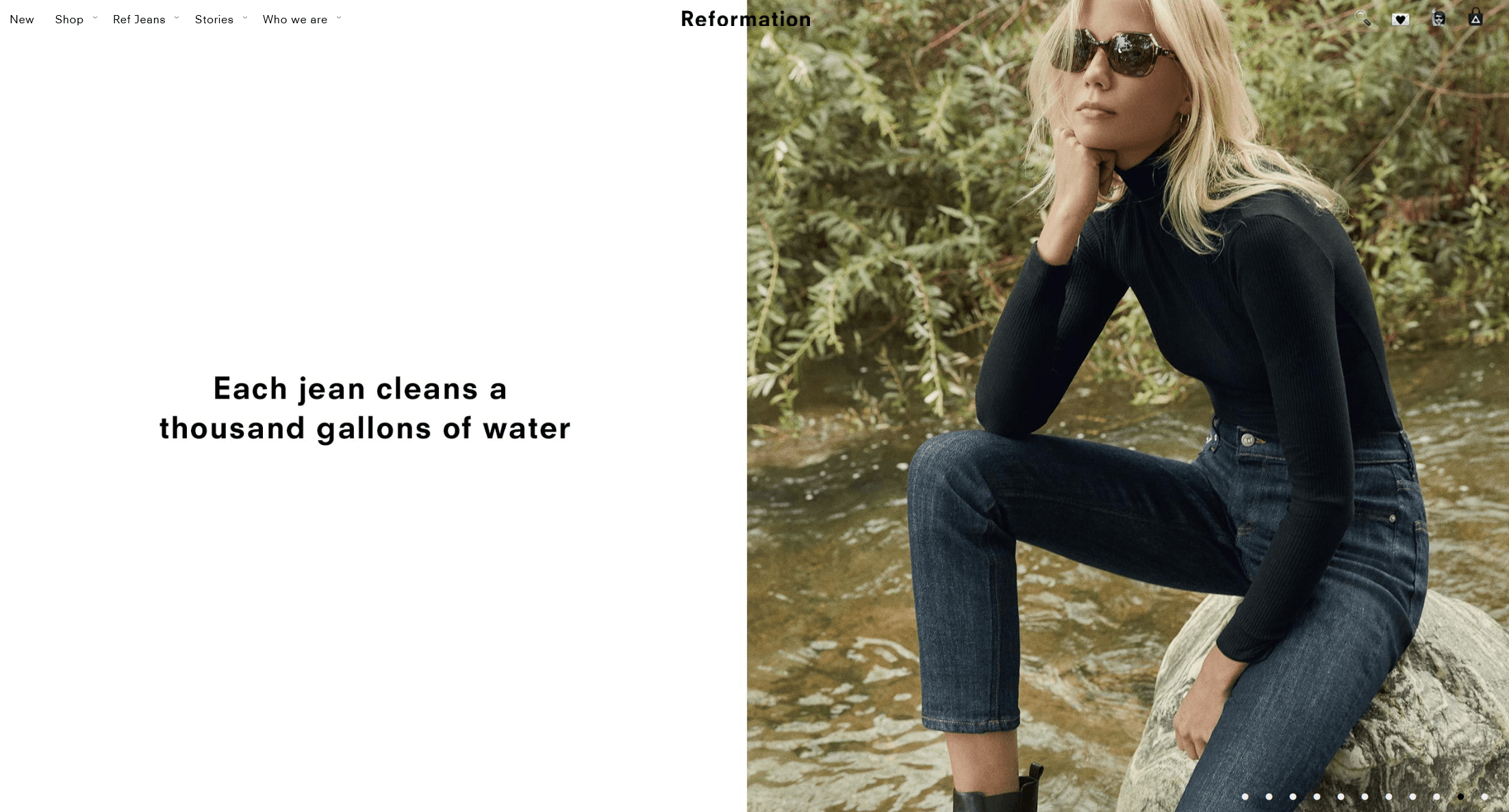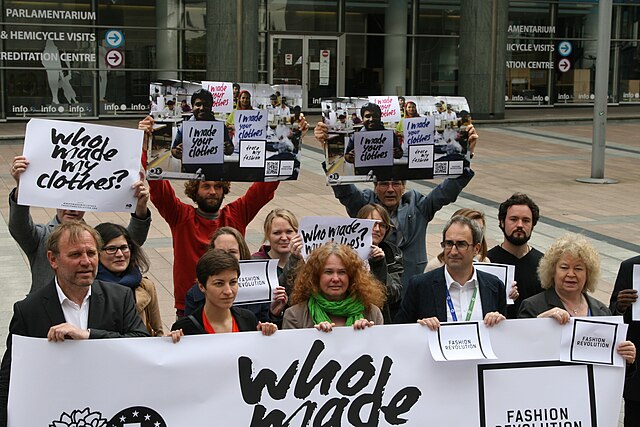The Impact of Social Media on Consumer Behavior in Eco-Friendly Fashion Brands
Meta Description: Explore how social media shapes consumer behavior in eco-friendly fashion brands, driving awareness, engagement, and sustainable choices.
In today's world, social media has become an undeniable force that shapes our everyday choices, particularly in the realm of fashion. As consumers become increasingly conscious of the impact their purchases have on the environment, the influence of platforms like Instagram, TikTok, and Pinterest on eco-friendly fashion brands can be profound. This blog delves into the intricate relationship between social media and consumer behavior in the eco-friendly fashion sector, providing valuable insights and educating audiences on the significance of their choices.
Author: Elena Kowalska, an SEO Specialist with over five years of experience in the digital marketing field, has assisted more than 30 brands in optimizing their online presence and understanding market trends.
Understanding Consumer Behavior in Eco-Friendly Fashion
The Role of Social Media in Shaping Trends
Social media acts as a catalyst for trends, particularly among younger demographics. A report from McKinsey reveals that 70% of consumers are influenced by social media when making purchasing decisions, a figure that rises significantly among Millennials and Gen Z. These demographics are not only looking for trendy apparel but also seek to align their purchases with their personal values, including sustainability.
Consumers today are more aware of environmental issues and the ethical implications of their fashion choices. According to a Nielsen survey, 73% of Millennials expressed willingness to pay more for sustainable products. This presents a unique opportunity for eco-friendly fashion brands to utilize social media strategically to communicate their value proposition effectively.
Key Insights into Eco-Friendly Fashion Trends
To understand the impact social media has on consumer behavior, it's crucial to identify the current trends within the eco-friendly fashion space. Some of the most significant shifts include:
- Minimalism: A movement that emphasizes simplicity and sustainability, encouraging consumers to purchase less and choose wisely.
- Circular Fashion: This trend promotes sustainable consumption where brands incorporate recycled materials and encourage products' life cycle to extend beyond the purchase.
Social media platforms facilitate these movements by raising awareness and fostering communities around them, allowing consumers to share their experiences and insights effortlessly.
Examples of Successful Eco-Friendly Brands
Patagonia: A Pioneer in Sustainable Fashion
One brand that stands out in the eco-friendly fashion landscape is Patagonia. Their social media strategy is emblematic of how storytelling can resonate with audiences. The brand's famous campaign, "Don't Buy This Jacket," successfully encouraged consumers to reconsider their consumption habits, positioning Patagonia as a thought leader in sustainable fashion.

Key aspects of Patagonia's approach include:
- Advocating for environmental responsibility through impactful messaging.
- Engaging with their audience through authentic storytelling that highlights their commitment to sustainability.
- Utilizing user-generated content, creating a community around shared values.
Reformation: Leading the Charge in Sustainable Fashion
Another noteworthy example is Reformation, a brand that leverages Instagram to promote eco-friendly practices and connect with consumers. Through engaging visual content and behind-the-scenes insights, Reformation fosters a sense of authenticity. The brand offers sustainable practices transparently and has seen tremendous success in conversions and customer loyalty. Their Instagram campaigns often feature metrics highlighting how the brand's choices positively impact the environment, directly resonating with conscientious consumers.

Social Media Campaigns That Make a Difference
Case Study: #WhoMadeMyClothes
The #WhoMadeMyClothes campaign, initiated by Fashion Revolution, serves as a powerful case study demonstrating the potential of social media in promoting ethical fashion practices. This initiative encouraged consumers to inquire about the manufacturing origins of their clothing, sparking a global conversation about transparency in the fashion industry.

Social media played a pivotal role in amplifying the campaign:
- Consumer engagement soared as individuals shared their inquiries, leading to increased brand accountability.
- Influencer partnerships effectively spread the message, enhancing visibility and participation in the movement.
The result? Brands began taking greater responsibility for their supply chains, aligning their practices with consumer expectations.
The Influence of Social Media Platforms
Instagram, TikTok, and Pinterest: A Trifecta of Influence
Different social media platforms play crucial but varied roles in shaping consumer perceptions. For instance:
- Instagram is central to visual storytelling in fashion, allowing brands to showcase sustainable practices through aesthetic content.
- TikTok has become a hub for viral fashion trends, where eco-friendly brands can reach a wider audience through creative, engaging videos.
- Pinterest serves as a powerful tool for consumers seeking inspiration, allowing brands to create boards showcasing sustainable lifestyle choices.
Recent statistics demonstrate that brands promoting sustainability have higher engagement rates compared with traditional fashion brands, proving that eco-conscious messaging resonates with consumers.
Consumer Sentiment and Trends
Understanding Consumer Sentiment
Sentiment analysis tools reveal that discussions surrounding sustainability in fashion have surged, particularly during events like Earth Day. These insights enable brands to gauge consumer concerns and tailor their strategies accordingly.
For example, trending hashtags related to sustainability often reflect an increasing awareness of ethical practices:
- Posts under hashtags such as #SustainableFashion and #EcoFriendly generate substantial engagement, indicating a strong community interest in these topics.
Moreover, surveys suggest that over 60% of online shoppers now consider sustainability when making purchases. This shift highlights the growing demand for eco-friendly options in the fashion market.
The Role of Influencers in Eco-Friendly Fashion
Ethical Endorsements: A Game-Changer for Brands
Influencers have emerged as pivotal figures in promoting sustainable fashion. By advocating for eco-friendly brands, influencers create authentic connections with followers who value transparency and ethical practices. Data shows that influencer endorsements can double brand engagement, particularly in sustainable products, as consumers increasingly look for recommendations from trusted sources.
Among the notable influencers championing sustainability are figures like Kristen Leo and Francesca Ramsey, who both harness their platforms to elevate eco-friendly brands and educate their audiences. Their impact demonstrates the value of ethical endorsements in shaping consumer behavior and promoting awareness of responsible fashion choices.
Encouraging Sustainable Practices
Tools for Informed Consumerism
To navigate the complex landscape of eco-friendly fashion, consumers can leverage tools like Good On You and Sustainably Chic, which offer insights into brands' sustainability claims. These platforms provide valuable information, helping consumers make more informed decisions and better align their purchases with their values.
Educational Resources and Recommendations
Support networks and educational resources further empower consumers to embrace sustainable habits. Following reputable eco-fashion blogs or subscribing to platforms dedicated to sustainable living can provide insights into responsible brands and practices, fostering a more environmentally aware consumer base.
Conclusion
The impact of social media on consumer behavior in eco-friendly fashion brands is multifaceted and continually evolving. As shoppers become increasingly aware of the ethical implications of their choices, brands that prioritize sustainability must use these platforms strategically to engage and inform their audiences.
By raising awareness, educating consumers, and encouraging responsible practices, social media has the power to foster a cultural shift toward greater sustainability in the fashion industry. As we continue to navigate this landscape, the role of consumers, brands, and influencers will be paramount in driving change.
If you are passionate about sustainable fashion, consider exploring more about eco-friendly brands or following social media accounts that advocate for mindful consumption. Join the conversation and be part of the movement shaping the future of fashion—one sustainable choice at a time!
